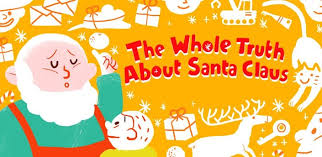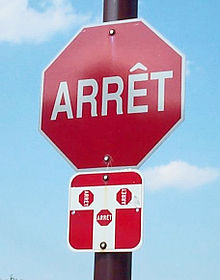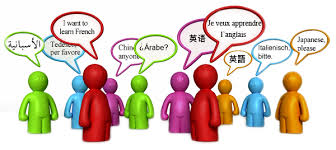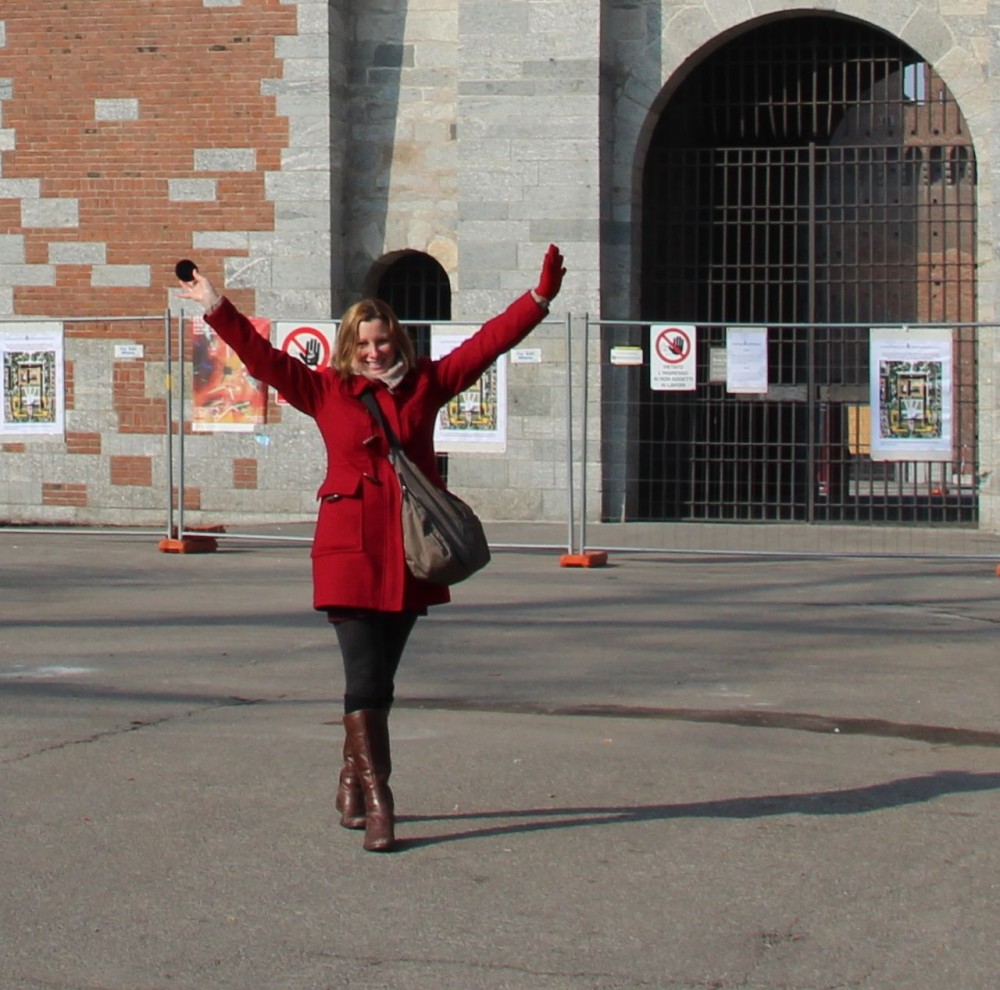❝To have another language is to possess a second soul.❞
‒Charlemagne
Vasali Nagypapa, my grandfather on my mom’s side, was a soldier in the Second World War, knighted for bravery, and was a self-taught intellect. His formal education was about grade two, but that didn’t stop him from ravenously learning. He taught himself to read, to write, to play musical instruments, to learn the mechanics of everything in the world around him and participated in all things political.
“You are as many people as you are languages.” he would say and he honestly believed it was the most important thing for any of grandchildren to do. Coming from Hungary, invaded by the Germans, then ruled by the Soviets; he looked at languages as a way out, but it really is more important than that.
Language opens doors to new culture and experiences that enhance your life. It allows you to have a part, if ever so small, in that other country by giving you a little window to how they live, who they are and why they believe in the things they believe.
The most astonishing part for me was to learn how other people from all around the world view my Canadian or even Hungarian heritage, told to me through our common language from their point of view. They look from the outside in, and I can see myself through their perspectives. Honestly, it gave me a broader view of the world we live in. We perceive ourselves one way growing up in one culture and often have no idea how we seem to outsiders. From peculiar little idiosyncrasies to understanding deep rooted traditions, from culture and customs to politics, policies and history and everything in between.
I often wonder how different my personality seems in each language I speak, in the country I live and how I come across to my friends, family and co-workers there. Obviously not having a clear grasp on a language makes it far more difficult to communicate. On the other hand, in my less comprehensive languages I spend far more time listening and carefully choosing exactly what I mean to say. I think this would show me in a rather different light than when I am home in Surrey rambling every thought that crosses my mind at rapid-fire speed. Also, when you communicate your thoughts to people of your new culture, many times your ideas seem new and innovative. A new perspective often has this effect.

I know what it feels like to be a native English speaker in a prominently native English speaking Canada, (part of the UK commonwealth). Here I had a life where I worked hard and reaped the fruit of labour. I was middle class with many friends from all walks of life. My parents were Hungarian immigrants making me first generation Canadian. With that came an understanding of what the ‘American’ dream meant, and we were reminded of its value often by my grandparents who escaped from communist Hungary in 1956 with my father and his brother at nine and eleven-years-old.
With our family history, I always felt very lucky to have the ability to work. Nothing was ever given to us, which gave me the drive to work even harder; much like the other 200,000 Hungarian immigrants who went to North America during the revolution, or the nearly 12 million European immigrants who arrived in the United States between 1870 and 1900.

In Hungary, during visits between 1977-1989, I understood how Hungarians perceived the American dream. They saw first hand how we, as Canadians, lived, and in small ways we brought the dream to Eastern Europe during communism. In suitcases packed with brand named clothes, watches, foodstuff completely foreign to them and of course there was the little piles of cash tucked between bed sheets when we left to keep our family going until our next visit.
In Canada my brother and I grew up with the luxuries of cable TV with a multitude of channels and Sunday morning cartoons, McDonald’s Happy Meals and station wagon road trips. We were thought to be wealthy, although we weren’t, it was only freedom they saw. We had the ability to work as hard as we wished if we wanted to get ahead. We were respected in Hungary for the gifts we brought, those items that were simply not available during the communist regime.
*I remember bringing NIKE runners for all five of my cousins one year. They were expensive for us, but they were the only things my family asked for, so we obliged. I had no name supermarket sneakers on my own feet and left my clothes for my cousins on every vacation. We also sent items home with other family members who visited at other times of the year. There was a steady stream of support, an undercurrent of goods from North America back to Europe by the immigrants. Was it survivor guilt, was it loyalty, or was it the love of family that kept those ties so strong. For me, I felt closer to the family in Hungary than to the family in the next town, simply by the importance and urgency my parents placed on sending stuff home.
My mother would collect and save for her yearly trip, and whenever she saw something our family back home would like, she bought it. It became something I just began to do at a young age, so when I started to visit Hungary as an adult, I knew what was expected of me.
Mom, Dad, our aunts and uncles, and our grandparents who lived in the promiseland; always said we were sending these items home, although I had never felt that Hungary was my home. I identify myself as Canadian, as I was born there, and grew up there.
❝Those who know nothing of foreign languages know nothing of their own.❞ ‒Johann Wolfgang von Goethe
The strange thing was, my family had money to go to Hungary each year, buy our Hungarian family cars, computers, or whatever they needed but they never had the money to put my brother or I through university. We grew up low middle class, and managed to lose everything in the 1980’s crash. Yet my cousins back in Hungary never had any idea of our own struggles, and went to university carefree, as they lived comfortably at home while we sent money to my grandmother to pay their bills. And the pendulum swings. Who will be king and who will be beggar?
Of course since 1989 and the fall of communism, things have changed in Eastern Europe, although the mentality of a dictatorship changes much slower than the powers of government. And truth be told, it is the same elite few that run the country, they have just managed to change their political profiles. Whichever the case, power is hard to give up from the gripping clutches of the privileged.

The next generation quickly forgets the generosity of those sending from the Americas, and they slowly feel disappointed that Santa Claus doesn’t actually exist in North America. Hard work brought them those gifts, not money trees. The expression in Hungary is that sausages grow on the trees. Unfortunately it is the old proverb come to light; Give a man a fish, you feed him for the day, teach a man to fish and you feed him for a lifetime.
We stopped giving fish. No good deed ever goes unpunished they say. I will leave it at that. Unfortunately my Canadian view of Hungary and even my Hungarian view of Canada since moving to France have both changed. It is far more accurate since living in Europe, and getting to know people from all walks of life.
In France we are different again. We arrived as Hungarian citizens, as they did not accept our Canadian dual citizenships. As part of the suppressed communist block: now I see the way Hungarians are viewed throughout the world. We are clumped together with the gypsies that steal, the workers that undercut the full pay French employee and take their pay home to their starving families. We were allotted with other people who change the fabric of a society by bringing their cultures to their new lands and refuse to blend in or assimilate.
We visited a government office and mysteriously the paperwork went missing. We come back to the same person again and each time we are met with blatant prejudice. As a Canadian this is hard to swallow. But on the other hand, I have never grown up in a country where everyone is the same: same religion, same nationality, same upbringing, and same traditions. So I am not sure if I too would fiercely protect it. Perhaps they have their reasons.
What I learned? I learn, that desperate people do desperate things. I know that people only do as much as they need to do to keep their families alive and safe. No one wants to leave their country of origin to work for cheap unless the wages are far more than what they receive at home. In Hungary the top tradesmen, doctors, scientists; all leave the country to find higher pay. Like France, education in Hungary is free, and people sought out the best education to try to give them the best chance in this world. But when your country cannot support the people after they are educated, they are forced to leave. I know far too many homesick people in Canada, who would love to move back to Hungary. It just isn’t feasible.
In Canada I had the 1950’s version of what Hungary represented to my grandparents. They were patriotic and remembered better times in Hungary. But the Hungary they love doesn’t exist. They only left when the government started to gun them down in the streets during the revolution. 2500 Hungarians were killed and buried in unmarked graves never to be seen again. 700 Soviet soldiers also died in the revolution. What my grandparents witnessed, what they had to endure and escape, was unbelievable. Somehow they survived, and started a life in Canada. They were in their forties. For my grandmother whose mother was German, it was her third fresh start, her third language and her fourth country. And then history repeats…

In France, we arrived with no language just eagerness and a love of the deep-rooted communities that seem to be going extinct in other countries. We came to assimilate, and give our children a more simple, slower paced life and for them to become part of France. Somewhat a novelty being from the ‘Americas’ as they call it, there is a true desire for the French to learn English, and perhaps they accept us faster than other immigrants for our ability to speak English; a commodity worth trading.
The system is not set up for an easy transition into France. France wants to stay French. Imagine that! If only every country had this basic instinct for self-preservation and not buy into the notion of commercialism.
Big business is exactly what deteriorates the fabric of a country. Where once the American dream was a reality, they have fallen off the other side of the horse and have become a trinket society based on materialism. This view of North America is from my European perspective.
When you are in the rat race it is very difficult to see that you are on a merry-go-round. Over and over again the same cycle. We strive for more and once we achieve it, we strive for more, and once we achieve it, we strive for more…

How is Canada viewed in Europe? Canada is viewed as part of America with no distinct culture or that we are Eskimos with dog sleds in place of cars. The truth, travelling Canadians are friendly and easy-going but known to be naive and nice to a fault. I don’t get offended anymore, as I smile my endless Canadian smile, because I feel they are missing part of their definition. It is through experience that we try to define our surroundings and the more information we gather, the more our opinions change. Am I right? Through a new language we are shown a glimpse, not a full picture of who we seem to be. The full spectrum of light in the mirror takes years of living in your new country to see.
Canadians are quietly patriotic, casual and laid-back, lovers of travel, and the outdoors. We firmly believe in equality, don’t like hearing discriminatory comments and we take this stand very seriously. I cringe whenever I hear French or Hungarian jokes about other cultures. Somehow they get away with this. It would never fly in Canada and makes Canadians very uncomfortable.
❝Perhaps of all the creations of man language is the most astonishing.❞ – Giles Lytton Strachey
A language, and the changing of that language show the versatility of the culture. Languages change with the times, and more and more words are becoming the same throughout the world; marketing, computer, Internet, ketchup. One day we will have one language that shares the essence of all our languages combined; to describe modern times, historical expressions and conundrums.
If you imagine the development of a language from the beginning, and the need to preserve that language for the future, it makes sense that people are protective. The death of a language is the most dreadful end to any culture, which ends their living history. It is easy for me to say that English is the universal language, and why don’t we all just talk in English, but that would be very arrogant. Especially when you take a close look at the living languages of the world and see how amazing and diverse they truly are.
WiKi fact:
- There are roughly 6,500 spoken languages in the world today. However, about 2,000 of those languages have fewer than 1,000 The most popular language in the world is Mandarin Chinese. There are 1,213,000,000 people in the world that speak that language.
English is the most common language used in business today. However, many details get lost when trying to translate expressions or feelings, or are used incorrectly. There are things that only make sense to me in Hungarian. Each language often has the exact word that describes something the best. It is the same in French, certain phrases depict the feeling or sense of a situation that just doesn’t exist in English. Ideas become lost in translation or convey a different meaning altogether.
In Hungarian you can change the meaning of words by adding inflections. Through these beginnings and endings, you can define what you are trying to say in greater detail. Verbs can be inflected in about 5000 different ways where most nouns, pronouns and numerals can be changed in 10,000 different ways. It is also the reason Hungarian (and Finnish) is among the most difficult languages to learn.
I, however, am still grateful for my grandparent’s sacrifice to leave Hungary in 1956, bringing two small children across the Austrian border in the cover of night, trampling over dangerous guarded fields, while making their journey to England where they lived for one year as refugees. Here they learned to speak in English. From there they chose Victoria, B.C. Canada as home. That would eventually bring me into the world to where I grew up swimming in the rivers, lakes and the Pacific Ocean, among endless giant pine forests, seeing bear, deer, raccoons, and whales. We tobogganed snow-capped mountaintops viewed in the distance surrounding our home. As children we scampered along forest lined sandy beaches, turning over shells and playing in tide pools. It was an amazing stress-free childhood along the Pacific Ocean Coast. Stunningly beautiful, enormous open spaces, and dense thick forests. It is a park-like setting.
What I am most grateful for is incorporating all three of my languages into the lives of my children. Having a multicultural upbringing opens your heart to accepting other cultures as equals. I grew up next to every colour and creed of man. I tasted their food and learned their traditions. Because of this acceptance, I have a deeper appreciation for the countries I live and visit.
The more languages you know, the more you are human… “As many languages you know, as many times you are a human being”– Tomáš Garrigue Masaryk
This refers not just to the ability to communicate in different languages, but also the ability to share in various spiritual spheres of those different cultures.











[…] Capestang. We just see bigger opportunities for our family around the next bend, and now that our children are fluent in French, (Alfonz and I also have a good base) it is time to continue the […]